In recent years, the contact grill market has seen a surge in popularity, with more consumers seeking convenient and efficient cooking solutions for their homes. As this trend continues to grow, the importance of private labeling in the contact grill industry cannot be overstated. By partnering with a private label supplier, businesses can tap into this thriving market, offering customized products that cater to the unique preferences of their customers. Today, we delve into the world of contact grill private labeling, exploring the benefits it brings and how businesses can harness its potential to succeed.
Introduction to Contact Grill Private Label Suppliers
Contact Grill Private Label Suppliers have emerged as a crucial component in the culinary appliance market, offering businesses a unique opportunity to establish their brand while tapping into a thriving consumer demand for high-quality cooking equipment. These suppliers act as intermediaries, providing a vast array of contact grills that can be customized with a company’s logo and branding. Let’s delve into the intricacies of these suppliers and how they can benefit your business.
The world of contact grills has seen a significant surge in popularity, particularly due to their convenience and ability to produce perfectly seared foods with minimal effort. This rise has been fueled by health-conscious consumers seeking quick and delicious meals at home, as well as foodservice operators looking to enhance their menu offerings. Private label suppliers have played a pivotal role in this expansion, offering a diverse range of contact grill models that cater to different customer preferences and budgets.
When considering a contact grill private label supplier, it’s important to understand the distinct advantages that this partnership can bring to your brand. By opting for private labeling, businesses can create a unique selling proposition that sets them apart from the competition. This is achieved by designing a custom grill that aligns with their brand identity, from the sleek design to the functional features that appeal to their target audience.
One of the most appealing aspects of working with a contact grill private label supplier is the flexibility they offer. These suppliers typically have a wide inventory of existing grill designs that can be easily modified to fit a company’s brand aesthetic. This includes everything from the color and finish of the grill to the placement and design of the branding. This level of customization ensures that the final product not only looks distinctive but also resonates with the brand’s core values and consumer base.
Selecting the right contact grill private label supplier involves several critical factors. It’s essential to choose a supplier with a strong track record of delivering high-quality products. Look for suppliers that use premium materials and have rigorous quality control processes in place. A supplier’s ability to meet deadlines and provide reliable customer service is also paramount, as these aspects directly impact the satisfaction of your customers and your business’s reputation.
Collaboration with a private label supplier typically involves a series of steps designed to ensure a smooth and successful partnership. The process usually begins with a detailed discussion about your brand’s needs and goals. This is followed by a review of the supplier’s product range to identify the best fit for your brand. Once the design is finalized, the supplier will handle the production, ensuring that all branding elements are accurately applied.
One of the most compelling reasons to partner with a contact grill private label supplier is the wealth of design and feature options available. These suppliers can offer grills with various heating elements, temperature controls, and cooking surfaces, allowing businesses to cater to diverse culinary preferences. Whether your customers are looking for a compact, countertop grill for home use or a heavy-duty commercial model, a private label supplier can provide the right solution.
Case studies from other businesses that have successfully collaborated with contact grill private label suppliers are a great resource for gaining insight into what to expect. These stories often highlight the positive impact that a unique and high-quality contact grill can have on a brand’s market position. From increased customer loyalty to enhanced sales figures, the benefits of private labeling are clear.
Quality control is non-negotiable in the private label supply chain. A reputable supplier will have a stringent quality assurance process that includes regular inspections of raw materials, during production, and before shipping. This commitment to quality ensures that the contact grills you receive are durable, efficient, and meet the expectations of your customers.
Customization is the heart of private labeling, and the contact grill industry is no exception. From choosing the right size and design to selecting the perfect finish and features, the possibilities are nearly limitless. This level of customization not only allows businesses to create a product that aligns with their brand identity but also enables them to offer a unique product to their customers, enhancing their perceived value and competitive edge.
In conclusion, contact grill private label suppliers are more than just manufacturers; they are strategic partners that can help businesses create a distinctive product that resonates with their target market. By leveraging the expertise and resources of these suppliers, companies can enter the market with a product that stands out, fosters customer loyalty, and ultimately drives sales. Whether you’re a startup looking to establish a new brand or an established company looking to expand your product line, partnering with the right contact grill private label supplier can be a game-changer for your business.
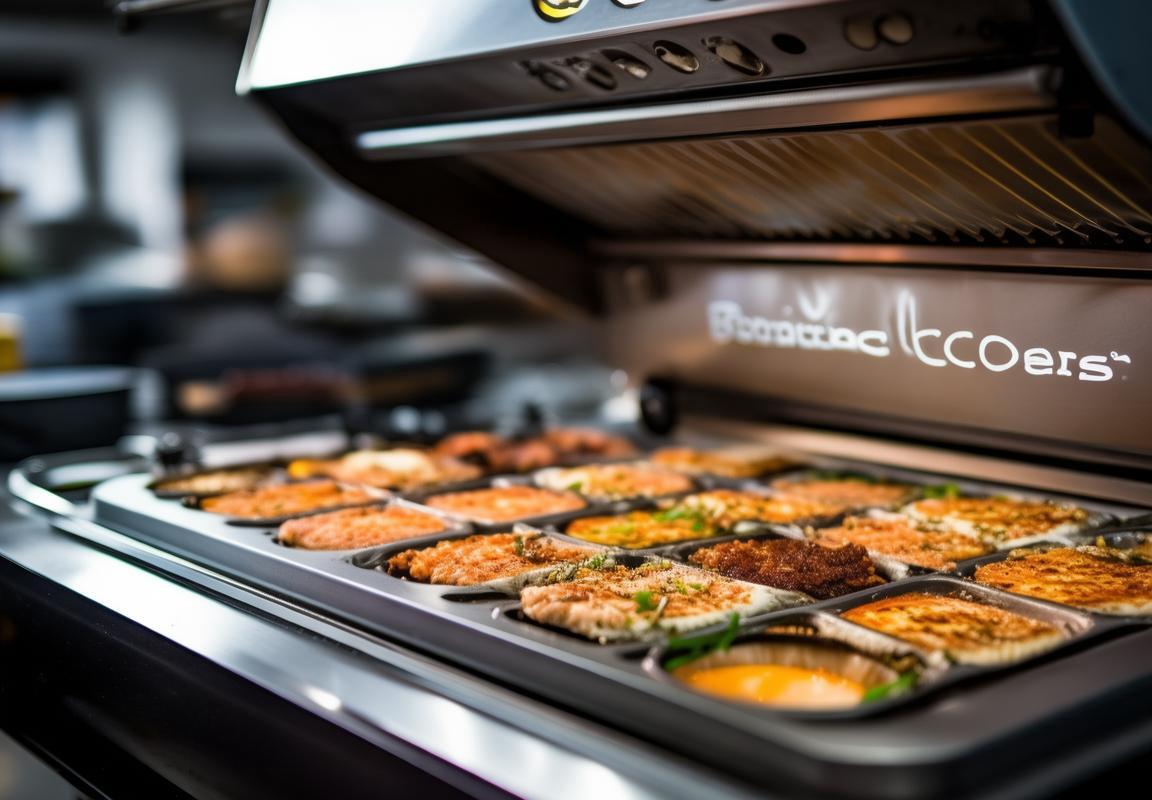
The Rise of Contact Grills in the Market
The contact grill, once a niche kitchen appliance, has seen a remarkable surge in popularity over the years. This culinary gadget has transformed the way many home chefs approach cooking, offering a convenient and efficient way to achieve that perfect grill mark without the mess of an outdoor grill. Let’s delve into the factors that have contributed to the rise of contact grills in the market.
-
Convenience Meets StyleThe compact and sleek design of contact grills has made them a favorite among urban dwellers and small-apartment residents. Their ability to fit on a countertop or be easily stored away when not in use has made grilling accessible to those with limited kitchen space.
-
Versatility Across DishesWhat sets contact grills apart is their versatility. They are not just for steaks; they can cook a variety of foods, from seafood and vegetables to sandwiches and even pizza. This multipurpose nature has expanded the appeal of contact grills beyond traditional grill enthusiasts.
-
Health and HygieneWith concerns over health and hygiene on the rise, contact grills have stepped in as a healthier alternative. These grills often require less oil than traditional grilling methods, reducing the fat content in the food. The sealed surfaces also prevent flare-ups, minimizing the risk of harmful smoke and chemicals.
-
Innovative TechnologiesThe integration of innovative technologies, such as non-stick surfaces, variable heat settings, and digital controls, has greatly enhanced the contact grill experience. These features allow users to achieve the perfect doneness and texture for a wide range of recipes with ease.
-
Culinary Trends and Social MediaCulinary trends, especially those propagated through social media, have played a significant role in the rise of contact grills. The ability to share visually appealing food on platforms like Instagram and Pinterest has made the grilling process more appealing and aspirational for home cooks.
-
Outdoor vs. Indoor GrillingWith the growing preference for outdoor living and entertaining, contact grills offer a convenient indoor solution for those who cannot always enjoy the outdoors. They provide a taste of the grill in any setting, which has been particularly beneficial during inclement weather or in urban environments.
-
Catering to Health-Conscious ConsumersAs health has become a focal point for many consumers, contact grills have become a symbol of healthier eating habits. The trend towards clean eating and reducing processed foods has aligned perfectly with the benefits that contact grills offer.
-
Affordability and AccessibilityThe cost of contact grills has also become more accessible over the years. There are now a wide range of options available at different price points, making it easier for a broader market to own and enjoy this cooking appliance.
-
Environmentally FriendlyThe energy efficiency of contact grills is another contributing factor. These appliances use less electricity than traditional ovens or outdoor grills, aligning with the global push towards sustainability and environmental consciousness.
-
Marketing and Branding EffortsEffective marketing campaigns and branding have played a pivotal role in the growth of contact grills. Manufacturers have focused on highlighting the benefits of their products, making them more attractive to consumers who are always on the lookout for the next best kitchen gadget.
The rise of contact grills in the market is a testament to the evolving culinary landscape and the changing needs of consumers. As technology continues to advance and consumer preferences shift, it’s likely that contact grills will continue to hold a significant place in the hearts and kitchens of many food enthusiasts.
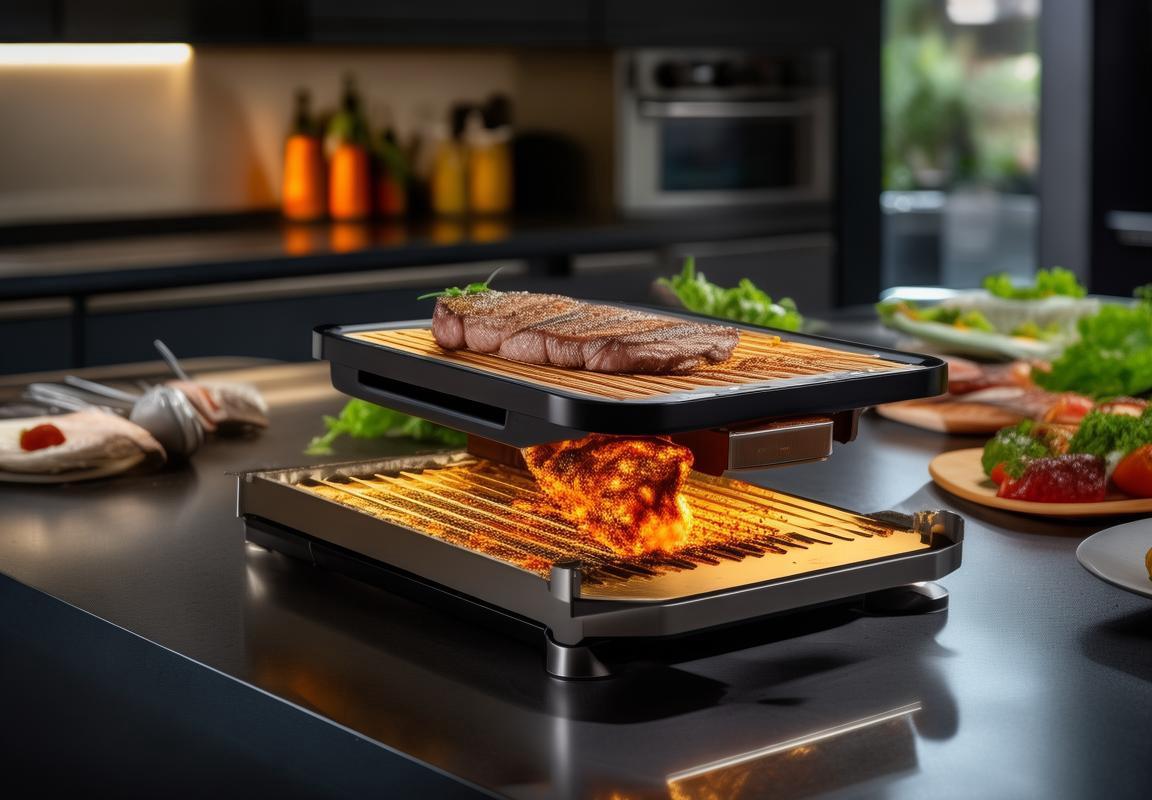
Understanding the Benefits of Private Labeling
Private labeling has become an increasingly popular strategy in the market, offering numerous benefits for both manufacturers and retailers. By understanding these advantages, businesses can make informed decisions about whether to embrace private labeling for their contact grill products.
-
Enhanced Brand IdentityPrivate labeling allows retailers to create a distinct brand identity for their products. By designing custom packaging, labels, and branding materials, retailers can establish a unique presence in the market, setting their contact grill offerings apart from competitors. This can lead to increased customer loyalty and brand recognition.
-
Cost-Effective ManufacturingOne of the primary benefits of private labeling is cost savings. When retailers opt for private labeling, they often have the ability to negotiate better prices with manufacturers. This can result in lower production costs, as retailers can take advantage of bulk purchasing and volume discounts. This cost-effectiveness can be passed on to consumers, making private label contact grills more affordable.
-
Customization OptionsPrivate labeling offers the flexibility to customize products according to specific market demands. Retailers can choose from a variety of contact grill models, features, and specifications, ensuring that their products cater to the needs and preferences of their target audience. This customization can lead to higher customer satisfaction and repeat purchases.
-
Faster Time-to-MarketPrivate labeling can significantly reduce the time it takes to bring new products to market. Since retailers already have a relationship with the manufacturer, the process of product development, manufacturing, and distribution can be streamlined. This agility allows retailers to quickly respond to market trends and consumer demands, staying ahead of the competition.
-
Reduced Inventory RiskWhen retailers private label their contact grill products, they are often able to purchase in smaller quantities, reducing the risk of overstocking. This inventory management strategy can help retailers avoid financial losses due to excess inventory, as they can order products based on actual sales data and consumer demand.
-
Increased Profit MarginsPrivate labeling can lead to higher profit margins for retailers. By eliminating the need to pay for a well-known brand’s marketing and advertising costs, retailers can allocate those funds to other areas of their business. Additionally, retailers can negotiate better pricing with manufacturers, ensuring that they keep a larger portion of the revenue generated from sales.
-
Competitive AdvantagePrivate labeling can provide retailers with a competitive edge. By offering unique, high-quality contact grill products at competitive prices, retailers can attract customers who are looking for something different from the mainstream brands. This differentiation can help retailers stand out in a crowded market and capture a larger share of the consumer base.
-
Flexibility in Product RangePrivate labeling allows retailers to expand their product range without the need to develop each product from scratch. They can work with manufacturers to introduce new flavors, designs, or features that align with market trends. This flexibility ensures that retailers can continuously offer fresh and appealing options to their customers.
-
Enhanced Marketing OpportunitiesPrivate labeling opens up new marketing opportunities for retailers. By having their own branded products, retailers can develop marketing campaigns that focus on their brand’s unique selling points. This can include social media promotions, in-store displays, and targeted advertising, all of which contribute to building brand awareness and driving sales.
-
Quality Control and ConsistencyWhen working with a private label supplier, retailers have the opportunity to establish strict quality control measures. By closely collaborating with the manufacturer, retailers can ensure that their contact grill products meet the highest standards of quality and consistency. This focus on quality can help build trust with customers and reinforce the retailer’s brand reputation.
In conclusion, the benefits of private labeling for contact grill products are multifaceted. From enhancing brand identity and cost savings to increased flexibility and marketing opportunities, private labeling can be a powerful tool for retailers looking to differentiate themselves in a competitive market. By leveraging these advantages, businesses can create a strong and profitable presence in the contact grill industry.

Key Features to Look for in a Contact Grill Private Label Supplier
In the ever-evolving landscape of the culinary appliance market, private labeling has become a strategic choice for businesses looking to differentiate themselves. When it comes to contact grills, which have seen a surge in popularity due to their ease of use and versatility, selecting the right private label supplier is crucial. Here are some key features to consider when choosing a contact grill private label supplier:
1. Quality of the GrillThe heart of any private label product is its quality. A reliable supplier should offer contact grills made from durable materials, with precise engineering that ensures even heating and longevity. Look for suppliers with a history of producing high-quality grills that meet or exceed industry standards.
2. Customization OptionsThe ability to customize your contact grill is a significant benefit. A good private label supplier should provide various design options, such as different colors, branding, and features that can be tailored to your brand’s identity and target market. Customization can include unique features like adjustable heat settings, non-stick surfaces, or even digital controls.
3. Range of ModelsA reputable supplier will offer a range of contact grill models to cater to different customer needs and budgets. This diversity allows you to select the perfect grill for your product line, ensuring you can meet the demands of various market segments.
4. Production Capacity and Turnaround TimeThe efficiency of a private label supplier’s production process is crucial, especially if you’re looking to launch your product quickly. A supplier with a strong production capacity and a short lead time can help you get your product to market faster without compromising on quality.
5. Compliance and CertificationsWhen dealing with food preparation appliances, compliance with safety and quality regulations is non-negotiable. Ensure your supplier adheres to international standards and holds relevant certifications, such as CE, FDA, and NSF, which are vital for consumer safety and trust.
6. Innovation and Research and DevelopmentA forward-thinking supplier invests in innovation and research and development (R&D). This means they are likely to offer the latest grill technologies and features, keeping your product line ahead of the competition. Look for suppliers with a track record of introducing new and improved contact grill models.
7. Branding and Packaging SupportEffective branding and packaging can make or break a product’s success. A private label supplier should offer comprehensive branding services, including custom packaging design, labels, and even point-of-sale materials that align with your brand’s messaging and aesthetic.
8. Logistics and DistributionA reliable supplier will have a robust logistics and distribution network to ensure that your contact grills are delivered to your customers efficiently and safely. This includes managing shipping, warehousing, and handling any necessary customs documentation.
9. After-Sales SupportCustomer satisfaction is key in the private label market. A good supplier will provide after-sales support, including product training, technical assistance, and warranty services. This support can help maintain customer loyalty and your brand’s reputation.
10. Transparency and CommunicationOpen communication is essential for a successful partnership. A supplier that is transparent about their processes, pricing, and timelines will help you make informed decisions. Regular updates and a clear line of communication can prevent misunderstandings and ensure a smooth collaboration.
11. Financial ConsiderationsPricing is a critical factor, but it shouldn’t be the only one. While cost is important, it’s equally vital to consider the overall value you’re getting. This includes the quality of the product, the level of customization, and the supplier’s ability to meet your business needs.
12. Market Reputation and TestimonialsLastly, the reputation of a private label supplier in the market can provide valuable insights. Look for testimonials from other businesses that have worked with the supplier to gauge their level of satisfaction and the quality of their service.
By considering these key features, you can ensure that your choice of a contact grill private label supplier aligns with your business goals and helps you deliver a high-quality product that resonates with your customers.
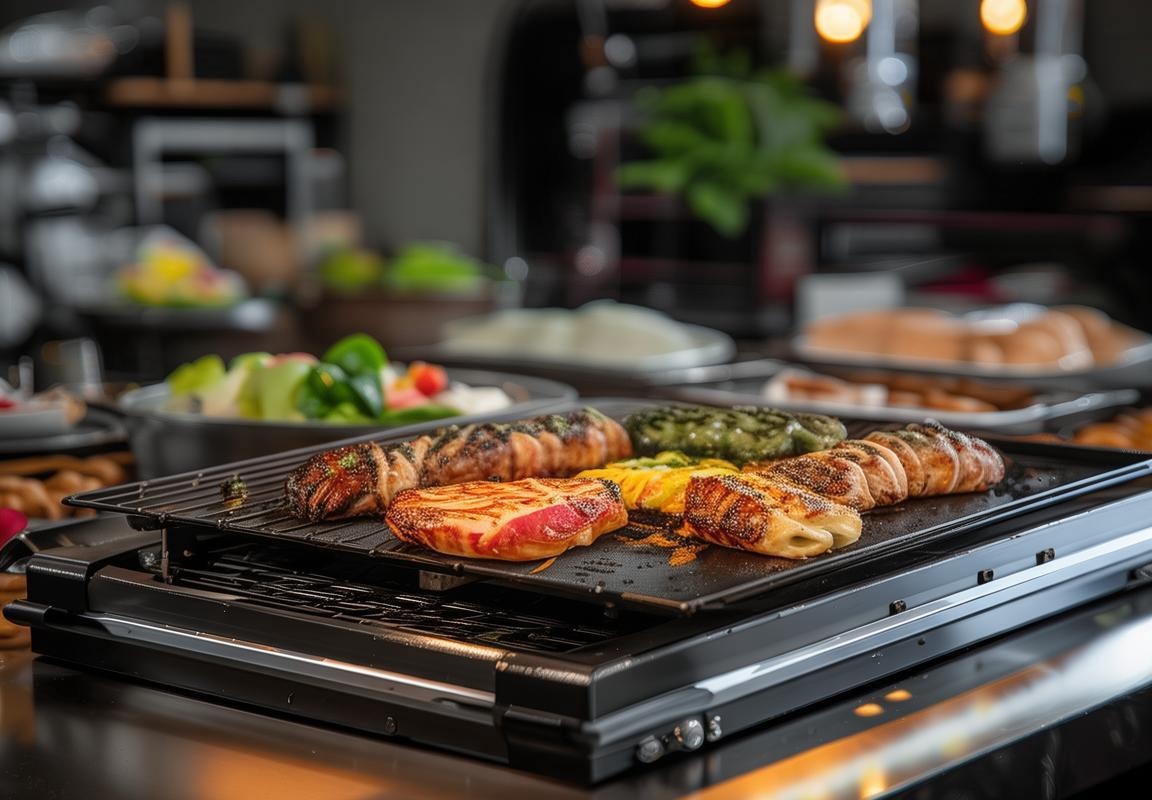
How to Choose the Right Private Label Supplier
Navigating the sea of private label suppliers can be daunting, but with the right approach, you can find a partner that aligns perfectly with your brand’s vision. Here are some essential factors to consider when selecting the ideal private label supplier for your contact grill products:
-
Quality Assurance and StandardsA reliable supplier must prioritize quality. Look for one that adheres to rigorous quality control measures, including ISO certifications and adherence to safety standards. Their products should meet or exceed industry benchmarks, ensuring that your customers receive a consistent and high-quality experience.
-
Product Range and CustomizationA good supplier should offer a diverse range of contact grill options, allowing you to cater to various market segments. Additionally, the ability to customize products to your brand’s specifications is crucial. This could include unique designs, branding, or even specific features that set your product apart from competitors.
-
Manufacturing Capacity and Lead TimesAssess the supplier’s manufacturing capabilities to ensure they can handle your production volume. A supplier with ample capacity can scale up production quickly without compromising on quality. Also, consider their lead times—longer production cycles can delay your product launch and stock availability.
-
Pricing Transparency and ValueWhile cost is a significant factor, it’s not the only one. Look for suppliers who offer competitive pricing without cutting corners on quality. Transparency in pricing structures and potential cost-saving opportunities, such as bulk discounts or volume-based pricing, can also be beneficial.
-
Experience and ReputationThe experience of a supplier can be a strong indicator of their reliability. A well-established supplier with a solid reputation in the industry is more likely to have a deep understanding of market trends and customer preferences. Check reviews, testimonials, and case studies to gauge their reputation.
-
Communication and Customer ServiceEffective communication is key in a business relationship. Ensure the supplier is responsive, professional, and willing to listen to your needs and concerns. Good customer service can make a significant difference, especially when issues arise during production or after the product is on the market.
-
Distribution and LogisticsA supplier’s logistics capabilities are vital for ensuring your products reach customers efficiently. They should have a reliable distribution network that can handle both domestic and international shipping, with options for tracking and delivery time guarantees.
-
Environmental and Ethical PracticesIn today’s market, consumers are increasingly conscious of environmental and ethical considerations. A supplier that practices sustainable manufacturing and sourcing, and that has ethical labor practices, can enhance your brand’s image and appeal to a broader customer base.
-
Scalability and Future GrowthConsider the supplier’s ability to scale with your business. As your brand grows, you’ll need a supplier who can adapt to increased demand without sacrificing quality or reliability. Look for suppliers with a track record of supporting the growth of their clients.
-
Legal Compliance and CertificationsEnsure that the supplier complies with all relevant legal requirements and holds necessary certifications. This includes compliance with food safety regulations, intellectual property laws, and any other industry-specific regulations that may apply.
-
Technology and InnovationA forward-thinking supplier invests in technology and innovation to improve their processes and offer the latest products. This can translate into better product features, more efficient production, and a competitive edge in the market.
-
Post-Sales SupportEven after the product is in the hands of customers, the relationship with your supplier should continue. Look for suppliers that offer post-sales support, including product maintenance, customer service assistance, and potential for future product development collaborations.
By carefully considering these features, you can identify a private label supplier that not only meets your current needs but also has the potential to grow with your brand. Remember, the right supplier can be a valuable partner in your journey to success in the contact grill market.

The Process of Collaborating with a Contact Grill Private Label Supplier
Navigating the world of private label suppliers can be complex, especially when it comes to contact grills. Here’s a detailed look at the collaborative process that can help you build a successful partnership:
Understanding the Supplier’s CapabilitiesBefore diving into collaboration, it’s crucial to understand the supplier’s core competencies. This includes their experience with contact grills, their manufacturing processes, and their ability to meet your specific product requirements. Look for suppliers who have a proven track record in the industry and can demonstrate their expertise in creating high-quality grills.
Establishing Clear Communication ChannelsEffective communication is the backbone of any successful partnership. Ensure that your private label supplier has clear channels of communication, including regular updates on production, quality control measures, and any potential issues. This might involve email, phone calls, or even video conferences, depending on the supplier’s preference and the complexity of your project.
Defining Your Product SpecificationsOne of the most critical steps in the collaboration process is defining your product specifications. This includes the size, design, features, and materials of the contact grill. Be as detailed as possible to avoid misunderstandings and ensure that the supplier understands exactly what you’re looking for. Include any unique selling points or branding elements that are essential to your product.
Reviewing Sample ProductsRequesting and reviewing sample products is a vital part of the selection process. This allows you to assess the quality, functionality, and design of the contact grill. Pay close attention to the craftsmanship, durability, and ease of use. If the samples meet your expectations, it’s a good sign that the supplier is capable of producing a high-quality product for you.
Negotiating Terms and ConditionsOnce you’re satisfied with the supplier’s capabilities and product samples, it’s time to negotiate the terms and conditions. This includes pricing, minimum order quantities, lead times, and any other relevant details. Be prepared to discuss and potentially adjust your requirements to find a mutually beneficial agreement. It’s also important to clarify any intellectual property rights and branding guidelines.
Quality Control and AssuranceQuality control is non-negotiable when it comes to private labeling. Work with your supplier to establish rigorous quality control measures that will be in place throughout the manufacturing process. This might involve regular inspections, certifications, and compliance with international standards. Ensure that there’s a clear process for addressing any defects or issues that arise.
Developing a TimelineA well-defined timeline is essential for a smooth collaboration. Discuss and agree upon key milestones, such as order placement, production start dates, and expected delivery times. This timeline should also account for any potential delays or unforeseen circumstances. Keeping everyone on the same page regarding deadlines will help prevent misunderstandings and keep the project on track.
Regular Updates and Progress ReportingMaintaining regular communication and receiving updates on the progress of your order is crucial. This ensures that you’re informed of any changes or developments that might affect the final product. Your supplier should provide detailed reports, including photos or videos of the production process, to give you peace of mind and allow you to make any necessary adjustments promptly.
Addressing Challenges and Finding SolutionsThroughout the collaboration, it’s inevitable that challenges will arise. Whether it’s a quality issue, a production delay, or a misunderstanding, it’s important to address these promptly. Work together with your supplier to find solutions that align with your business goals and maintain the integrity of your brand.
Final Product ApprovalBefore the final shipment, it’s essential to conduct a thorough review of the completed contact grills. This final approval step ensures that the product meets your expectations and aligns with your brand standards. If any issues are identified, they should be resolved before the product is released to the market.
Conclusion of the CollaborationOnce the final product is approved and the shipment is completed, the collaboration with your private label supplier is essentially concluded. Reflect on the partnership and gather feedback from both parties to identify areas for improvement. Maintaining a positive relationship with your supplier can open the door for future collaborations and continued success in the market.

Case Studies: Success Stories with Contact Grill Private Label Suppliers
In the world of culinary innovation, private label contact grill suppliers have played a pivotal role in the success of many entrepreneurs and brands. Here are some compelling success stories that showcase the benefits of collaborating with these suppliers.
A tale of a local café owner, Sarah, who was struggling to find the perfect contact grill to cater to her customers’ desire for high-quality, char-grilled foods. After researching various private label suppliers, Sarah struck gold with a company that offered not only a top-notch product but also a tailored branding solution. The supplier’s ability to customize the grill’s design and incorporate Sarah’s café’s logo and color scheme transformed the appliance into a seamless extension of her brand, boosting customer loyalty and sales.
Another success story comes from the world of online retail, where an e-commerce entrepreneur, Mark, discovered that offering a unique contact grill under his own label could set him apart from the competition. By working closely with a private label supplier, Mark was able to develop a grill that featured innovative features and a sleek design, which appealed to health-conscious consumers looking for a healthier alternative to traditional grilling methods. The supplier’s efficiency in managing the production process and ensuring timely delivery allowed Mark to keep his inventory fresh and meet customer demand without delays.
A well-known gourmet food brand, known for its gourmet burgers, was looking to expand its product line. After evaluating several private label suppliers, the brand partnered with a company that shared its commitment to quality and sustainability. The supplier’s ability to source high-quality, locally-grown meats and use eco-friendly materials in the grill’s construction aligned perfectly with the brand’s values. This collaboration not only enhanced the brand’s reputation but also resulted in a product that was a hit with consumers, who appreciated the brand’s dedication to both taste and environmental responsibility.
For a family-run restaurant chain, the key to maintaining its competitive edge was to offer unique, high-quality grills to its patrons. The chain’s owners worked with a private label supplier that had a proven track record in the industry. The supplier’s expertise in developing custom grills with specific features, such as adjustable heat settings and non-stick surfaces, allowed the restaurant to provide a superior grilling experience. The supplier’s willingness to invest in R&D to refine the grill’s design also meant that the restaurant’s customers enjoyed a product that was both innovative and user-friendly.
In the competitive fitness and wellness market, a supplement company sought to expand its product offerings to include a line of health-focused kitchen appliances. After considering multiple suppliers, the company chose a private label contact grill supplier that was known for its attention to detail and commitment to high-quality materials. The supplier’s ability to integrate the company’s branding and messaging into the grill’s design helped to establish a strong connection with customers who were looking for a healthy cooking option. The grill’s success in the market led to increased sales and a stronger brand presence.
A gourmet grocery store that specialized in artisanal foods decided to create its own line of high-end kitchen appliances. The store partnered with a private label supplier that offered a range of custom options, from the grill’s design to its features. The supplier’s in-depth knowledge of the market allowed the store to introduce a contact grill that was not only a beautiful addition to their customers’ kitchens but also a practical and efficient cooking tool. The supplier’s support in marketing and distribution ensured that the grill was prominently displayed and easily accessible to the store’s discerning clientele.
These success stories illustrate the value of working with a private label contact grill supplier. From small businesses to established brands, the ability to offer a unique, high-quality product that reflects the company’s identity and values can be the difference between blending in and standing out in a crowded marketplace. The right supplier can help bring your vision to life, ensuring that your product not only meets customer expectations but also exceeds them.
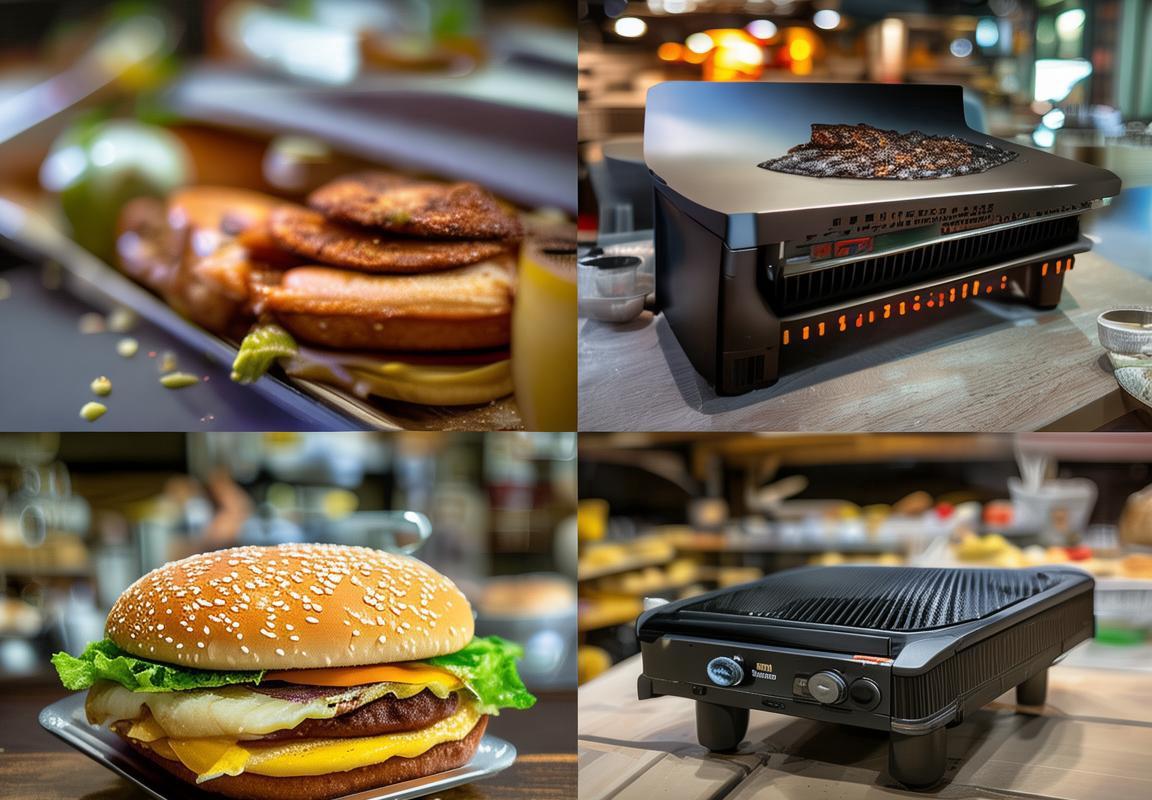
The Importance of Quality Control in Private Label Contact Grills
In the world of private label contact grills, maintaining a high standard of quality is paramount. The following points delve into the significance of quality control in ensuring that private label products meet consumer expectations and stand out in a competitive market.
The reputation of a brand is often tied to the quality of its products. When a company decides to go the private label route, it’s crucial that the products reflect the brand’s values and promise. A subpar product can tarnish a brand’s image, leading to customer dissatisfaction and potential loss of market share.
Consistency is key in the manufacturing process. Private label suppliers must ensure that each batch of contact grills produced is identical in quality to the previous one. This means adhering to strict manufacturing protocols and using the same high-quality materials throughout the production run. Consistency builds trust with consumers, as they come to expect a certain level of performance and reliability from the product.
Consumer safety should never be compromised. Quality control measures are essential to identify and eliminate any potential hazards in the contact grill manufacturing process. This includes checking for sharp edges, ensuring proper wiring, and verifying that all components meet safety standards. A supplier that prioritizes safety is one that a brand can rely on to deliver products that won’t harm end-users.
Innovation is a driving force in the market, and private label suppliers must stay ahead of the curve. Quality control plays a vital role in testing new features and technologies to ensure they work as intended and do not introduce new risks. This allows brands to offer cutting-edge products without sacrificing quality or safety.
Cost-effectiveness is a concern for many businesses, but it should not come at the expense of quality. A reputable private label supplier understands that investing in quality control can lead to long-term savings. By preventing defects and recalls, a supplier can reduce the costs associated with rework, warranty claims, and damage to the brand’s reputation.
Regulatory compliance is non-negotiable in the foodservice industry. Private label contact grill suppliers must adhere to local and international regulations, including those related to food safety and product labeling. Quality control systems help ensure that all products meet these requirements, reducing the risk of legal issues and fines.
Customer feedback is invaluable in the quality control process. Brands should work closely with their suppliers to gather feedback from customers who have used the contact grills. This information can highlight areas for improvement and help the supplier make necessary adjustments to the product or production process.
The lifecycle of a product is also a factor in quality control. From design to disposal, each stage must be monitored to ensure that the contact grill maintains its integrity and functionality. This includes rigorous testing during the development phase, ongoing inspections during production, and post-market surveillance to address any issues that may arise.
The use of advanced technology is becoming increasingly important in quality control. Automated systems can perform tasks such as material inspection, assembly verification, and performance testing, which can significantly reduce the likelihood of human error and improve efficiency.
Lastly, transparency in the supply chain is crucial. Brands should be able to trace their products back to their origin, ensuring that all components and materials meet the same high standards. This transparency not only builds trust with consumers but also allows brands to make informed decisions about their product offerings.
In conclusion, the importance of quality control in private label contact grills cannot be overstated. It is the foundation upon which a brand’s reputation is built, and it ensures that customers receive a product that is safe, reliable, and meets their expectations. By partnering with a supplier that prioritizes quality control, brands can rest assured that their private label products will stand out in the market and resonate with consumers.
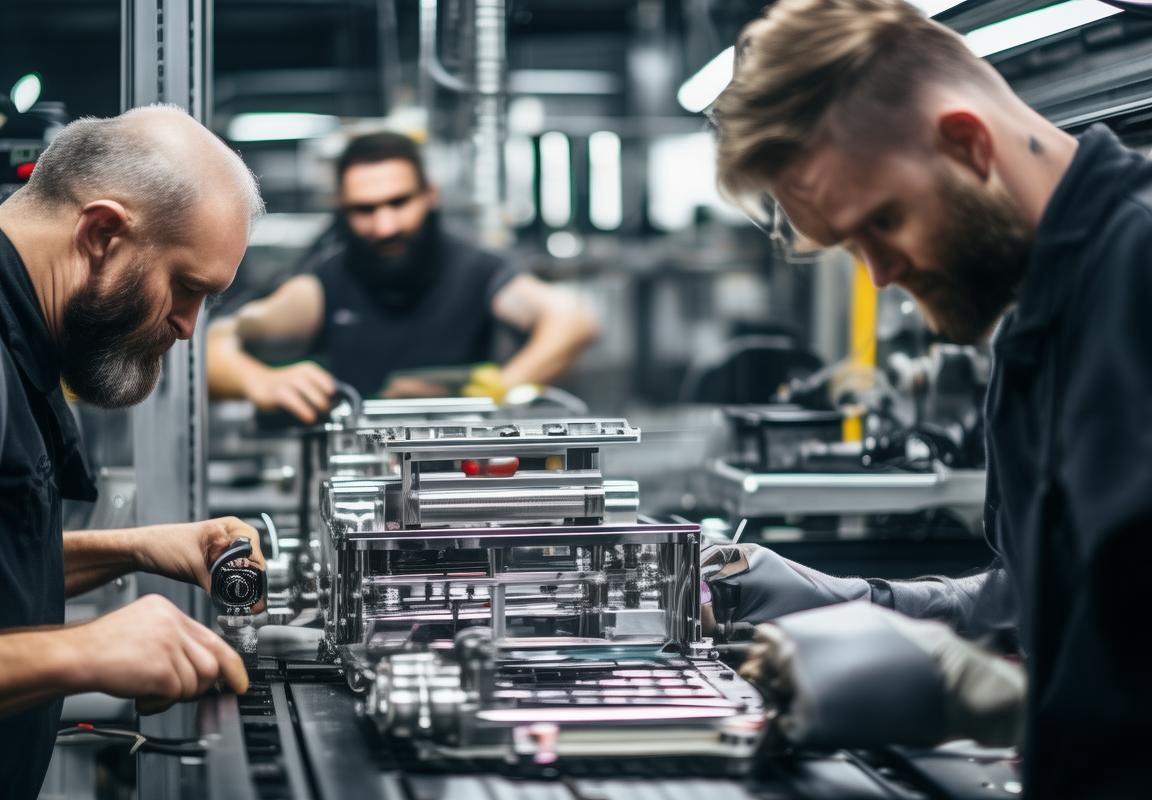
The Role of Customization in Private Label Contact Grills
Understanding the nuances of customization in private label contact grills is crucial for brands looking to stand out in a competitive market. Customization can range from minor adjustments to the design and branding to more significant changes that enhance the functionality and user experience. Here’s a closer look at how customization can make a difference:
The Power of Brand IdentityCustomizing a contact grill with your brand’s logo, colors, and design elements can create a strong brand identity. This not only helps in product recognition but also builds trust and loyalty among consumers. A grill that reflects a brand’s values and aesthetic can become a symbol of quality and reliability.
Enhancing Product DifferentiationIn a market flooded with similar products, customization can be the key to differentiation. By offering a contact grill with unique features, such as a special type of cooking surface or a unique cooking mechanism, a brand can attract customers who are looking for something different. This can be particularly effective in niche markets or among consumers who are passionate about grilling and culinary experiences.
Tailoring to Specific Consumer NeedsCustomization allows brands to cater to the specific needs and preferences of their target audience. For example, a brand might opt for a larger cooking surface for commercial use or a smaller, more portable model for outdoor enthusiasts. By understanding the diverse requirements of consumers, brands can offer products that are more likely to be purchased and used frequently.
Functionality and User ExperienceCustomization isn’t just about aesthetics; it’s also about enhancing functionality and the overall user experience. Features like adjustable heat settings, digital controls, or built-in accessories can be tailored to meet the demands of different types of cooks. A private label supplier might offer a range of options to choose from, allowing brands to offer their customers a grill that truly fits their cooking style.
Innovation and Technology IntegrationThe integration of innovative technologies and materials into private label contact grills is another area where customization plays a significant role. For instance, incorporating smart features that allow grills to be controlled via a smartphone app can appeal to tech-savvy consumers. Suppliers may offer a variety of tech add-ons that brands can select to enhance their product’s appeal.
Sustainability and Eco-Friendly OptionsConsumers are increasingly conscious of the environmental impact of their purchases. Customization can include sustainable materials and eco-friendly design elements, such as energy-efficient heating elements or recyclable packaging. By offering these options, brands can appeal to a growing market segment that values sustainability.
Cost-Effective CustomizationWhile customization can seem like an expensive endeavor, it doesn’t have to be. Private label suppliers often have the infrastructure and volume discounts that can make customization cost-effective. Brands can work with suppliers to find the right balance between unique features and competitive pricing, ensuring that the final product remains accessible to their target market.
Market Testing and IterationCustomization allows for market testing and iterative improvements. Brands can launch a limited edition model to gauge consumer response and then make adjustments based on feedback. This iterative process can lead to a refined product that better meets customer expectations over time.
Strategic PartnershipsChoosing the right private label supplier for contact grills is about more than just finding a manufacturer; it’s about forming a strategic partnership. Suppliers who offer a range of customization options can help brands grow their product lines and explore new markets. This collaboration can lead to a more dynamic and responsive product development process.
In conclusion, customization in private label contact grills is a multifaceted approach that touches on branding, differentiation, functionality, and sustainability. By working closely with a private label supplier, brands can create products that resonate with consumers and stand out in a crowded marketplace. The key is to find a supplier who understands the brand’s vision and is committed to delivering a high-quality, customized product that meets the evolving demands of the market.

Conclusion: Unlocking the Potential of Contact Grill Private Labeling
In the world of culinary innovation, the concept of private label contact grills has gained significant traction. These specialized cooking devices have become a staple in the market, offering consumers a convenient and efficient way to achieve that perfect sear on their favorite meats. As the demand for private label contact grills continues to rise, it’s crucial to recognize the importance of quality control, the role of customization, and how these factors contribute to the overall success of a brand. Here’s a deeper look into the potential that private label contact grilling holds.
Private label contact grills offer a unique opportunity for brands to establish their identity in a crowded market. By customizing the design, features, and branding of these appliances, companies can differentiate themselves from competitors and appeal to specific consumer segments. Customization isn’t just about aesthetics; it’s about tailoring the product to meet the exact needs and preferences of the target audience.
Customization allows for the integration of unique selling points (USPs) that resonate with consumers. For instance, a brand might offer a contact grill with a special coating that reduces sticking or a non-stick surface that ensures even heat distribution. These features can set a private label product apart from mass-produced counterparts and create a sense of exclusivity that consumers are willing to pay for.
Quality control is the backbone of any successful private label venture. Ensuring that each contact grill meets stringent quality standards is essential to maintain the brand’s reputation and customer satisfaction. From the selection of materials to the manufacturing process, quality control measures must be in place to prevent defects and guarantee that the final product is reliable and durable.
One key aspect of quality control is the adherence to safety regulations. Contact grills, like any kitchen appliance, must meet safety standards to prevent accidents and burns. A reputable private label supplier will conduct rigorous testing to ensure that their products are safe to use and meet all necessary certifications.
Another critical factor is the performance of the contact grill. Consistent heating, even cooking, and easy cleanup are all aspects that contribute to a high-quality product. Private label suppliers often have a team of engineers and product developers who work tirelessly to optimize the design and functionality of the grill, ensuring that it delivers on its promises.
The collaboration process with a private label contact grill supplier is a dance of creativity and logistics. It begins with an idea, which is then translated into a product concept. The brand and supplier work together to refine the design, select the materials, and establish the specifications that will define the final product.
During this collaboration, clear communication is key. Both parties must be on the same page regarding the product’s features, quality standards, and delivery timelines. Regular check-ins and updates are essential to ensure that the project stays on track and that any potential issues are addressed promptly.
Once the design is finalized, the manufacturing process begins. A reputable supplier will provide detailed documentation of the manufacturing process, including quality control checks at each stage. This transparency allows the brand to maintain a high level of oversight and ensures that the product meets the agreed-upon standards.
Once the product is ready, the focus shifts to distribution and marketing. A successful private label partnership includes strategic planning for how the product will be launched and promoted. This may involve co-branded marketing materials, targeted advertising campaigns, and distribution strategies that ensure the product reaches the right customers at the right time.
Several case studies have emerged as success stories in the private label contact grill industry. One such story is that of a small kitchen appliance company that decided to enter the market with a high-quality, eco-friendly contact grill. By working closely with a private label supplier, they were able to create a product that appealed to environmentally conscious consumers. The combination of innovative design, sustainable materials, and effective marketing led to a significant increase in sales and a strong market presence.
Another success story involves a well-known retail chain that wanted to offer a premium contact grill to its customers. By partnering with a private label supplier that could handle large-scale production and distribution, the retail chain was able to introduce a new line of premium grills that complemented their existing product offerings. The collaboration resulted in a boost in customer satisfaction and increased sales, further solidifying the brand’s reputation for quality and innovation.
In conclusion, the potential of contact grill private labeling is vast. By focusing on customization, quality control, and strategic partnerships, brands can tap into a market that is growing rapidly. The key is to understand the needs of the consumer, ensure the product meets the highest standards, and engage in effective marketing to reach the target audience. With the right approach, private label contact grilling can become a powerful tool for brands looking to make their mark in the competitive appliance industry.